Huiyun Tang
Factor-Assisted Federated Learning for Personalized Optimization with Heterogeneous Data
Dec 07, 2023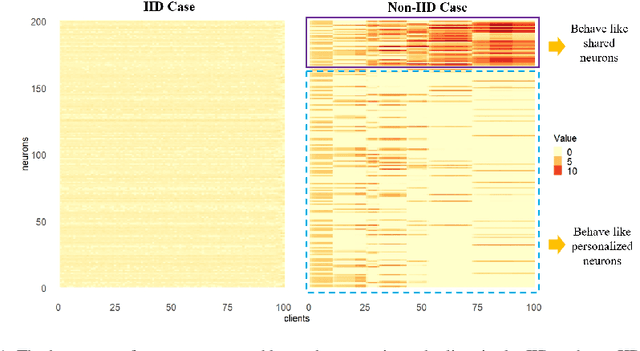

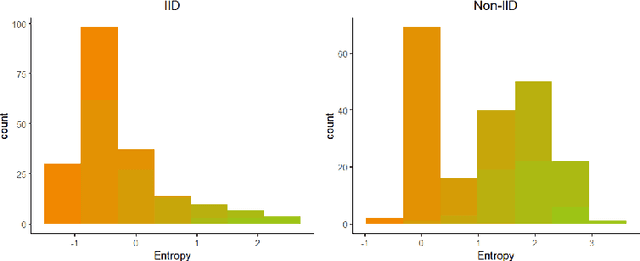
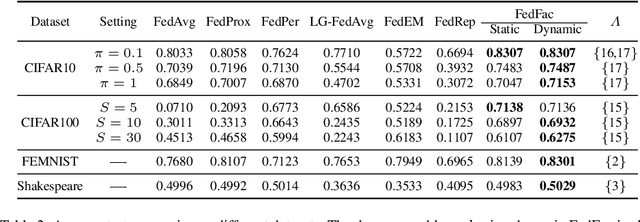
Abstract:Federated learning is an emerging distributed machine learning framework aiming at protecting data privacy. Data heterogeneity is one of the core challenges in federated learning, which could severely degrade the convergence rate and prediction performance of deep neural networks. To address this issue, we develop a novel personalized federated learning framework for heterogeneous data, which we refer to as FedSplit. This modeling framework is motivated by the finding that, data in different clients contain both common knowledge and personalized knowledge. Then the hidden elements in each neural layer can be split into the shared and personalized groups. With this decomposition, a novel objective function is established and optimized. We demonstrate FedSplit enjoyers a faster convergence speed than the standard federated learning method both theoretically and empirically. The generalization bound of the FedSplit method is also studied. To practically implement the proposed method on real datasets, factor analysis is introduced to facilitate the decoupling of hidden elements. This leads to a practically implemented model for FedSplit and we further refer to as FedFac. We demonstrated by simulation studies that, using factor analysis can well recover the underlying shared/personalized decomposition. The superior prediction performance of FedFac is further verified empirically by comparison with various state-of-the-art federated learning methods on several real datasets.
Right, No Matter Why: AI Fact-checking and AI Authority in Health-related Inquiry Settings
Oct 22, 2023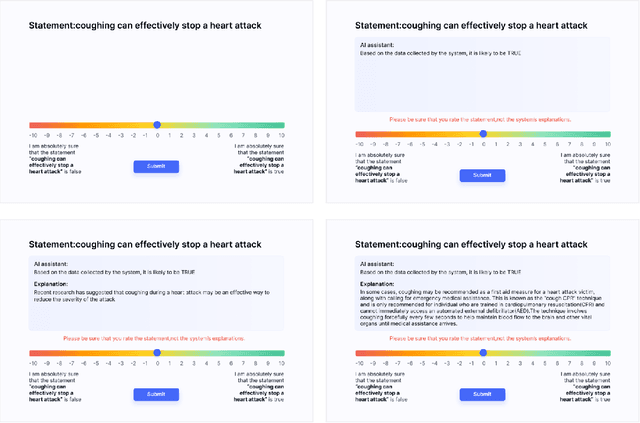
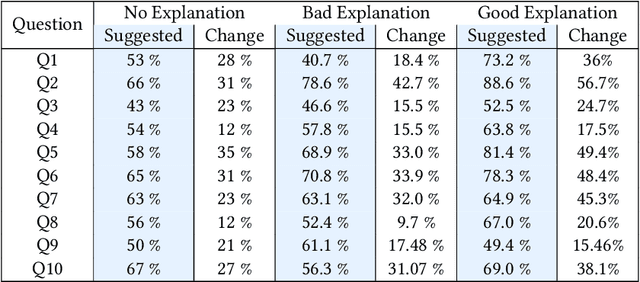
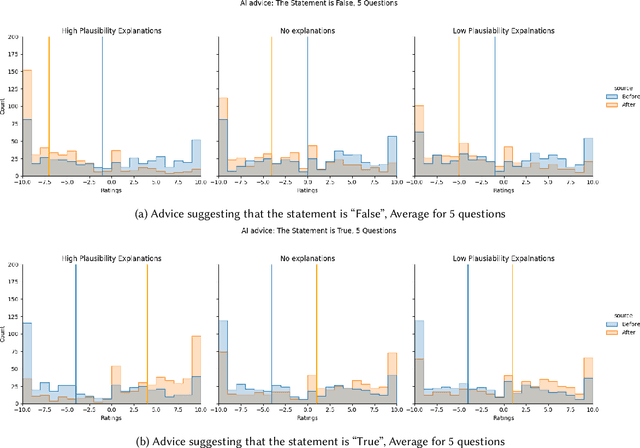

Abstract:Previous research on expert advice-taking shows that humans exhibit two contradictory behaviors: on the one hand, people tend to overvalue their own opinions undervaluing the expert opinion, and on the other, people often defer to other people's advice even if the advice itself is rather obviously wrong. In our study, we conduct an exploratory evaluation of users' AI-advice accepting behavior when evaluating the truthfulness of a health-related statement in different "advice quality" settings. We find that even feedback that is confined to just stating that "the AI thinks that the statement is false/true" results in more than half of people moving their statement veracity assessment towards the AI suggestion. The different types of advice given influence the acceptance rates, but the sheer effect of getting a suggestion is often bigger than the suggestion-type effect.
 Add to Chrome
Add to Chrome Add to Firefox
Add to Firefox Add to Edge
Add to Edge